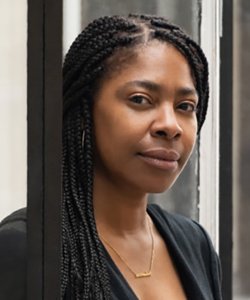Ten Questions for Tayari Jones

“I think that losing the joy of process causes writer’s block.” —Tayari Jones, author of Kin
Jump to navigation Skip to content

“I think that losing the joy of process causes writer’s block.” —Tayari Jones, author of Kin

The author of Clutch (Tin House, February 2026) reflects on adjusting rising and falling action across time in fiction.

“Take your time.” —D. S. Waldman, author of Atria

The author of Clutch (Tin House, February 2026) reflects on poetic time, dialogue, and writing effective scenes.

“If someone else could do it better, don’t write it.” —Anne Fadiman, author of Frog: And Other Essays

“Look around, have courage, and learn to say yes to things you are unfamiliar with from time to time.” —April Reynolds, author of The Shape of Dreams

“One day, all that sacrifice will have been worth it.” —Alice Evelyn Yang, author of A Beast Slinks Towards Beijing

The author of Cord Swell (Norton, 2025) considers the power of leveraging different media in poetry.

In her new memoir, The Flower Bearers, Rachel Eliza Griffiths unpacks grief and hard-won survival with a poet’s touch, offering a narrative of raw vulnerability, strength, and resolve.

“Look up from your own desperation and walk outside. No matter the weather, be outdoors each day. It will help you.” —Andrés Cerpa, author of The Palace